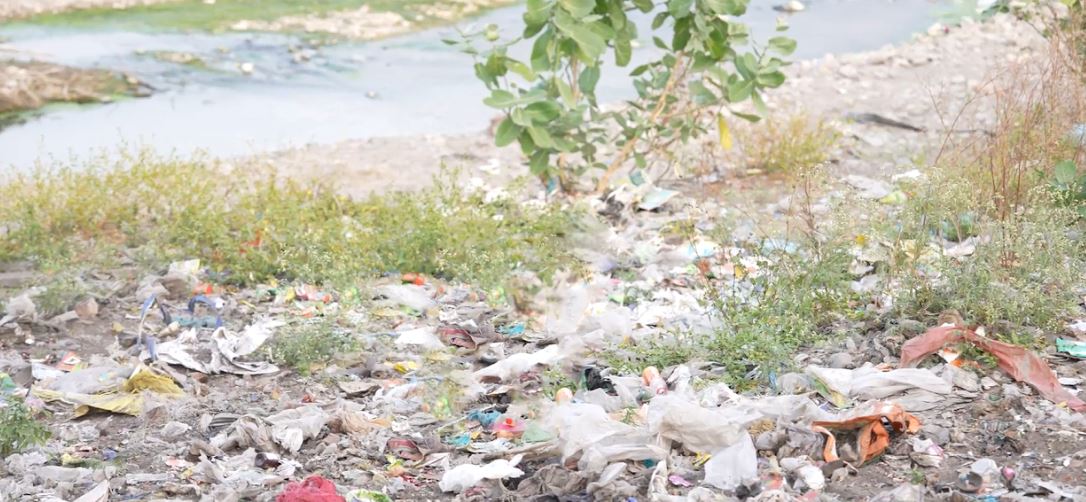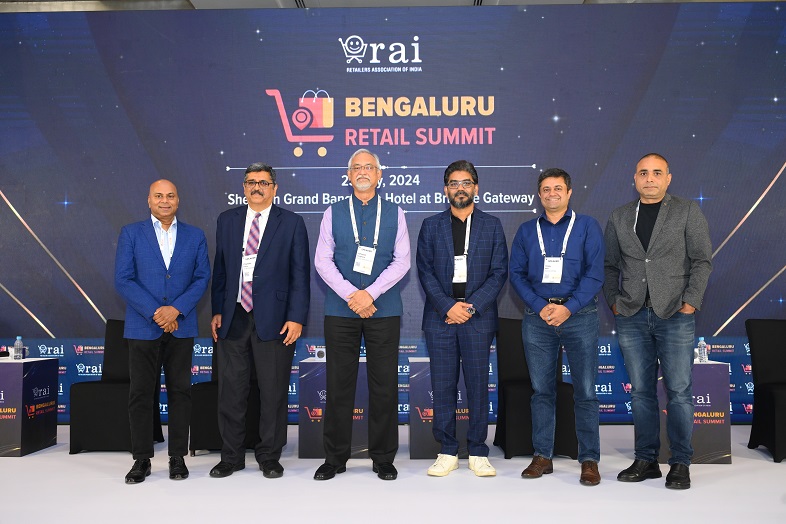
Hyderabad, India, 4th December 2023: Plastic accumulating in our oceans and beaches has become a global crisis. Recykal, an Indian Tech Leader for Sustainability and Circularity, believes that the problem and solution for ocean plastic lie on land. The ocean-bound plastic needs to be diverted from the oceans to recycling centres. Recykal also understand the value of plastic waste and consider it as a resource. Hence, Recykal has taken the initiative to beat the ocean-plastic pollution issue with its project ‘Samudramanthan’. This initiative is inspired by the Indian mythological tale of ‘Samudramanthan’ where the nectar came out from the ocean churning.
Under this initiative, Recykal has collected over 70 thousand metric tons of plastic from 207 districts from 19 states across India. Among these districts, 33 districts have coastal areas, and 173 districts are located on the banks of major rivers. A 10 km radius from the ocean and river coasts is covered in this activity. On the occasion of National Pollution Control Day, Recykal has revealed plans to scale up the ‘Samudramanthan’ project to cover all 66 coastal districts across India.
Here’s the detailed report of plastic collected through the pilot project:
(Coastal districts are written in bold and are also underlined)
| State | Districts | Plastic collected (in MT) |
| Assam | Sibsagar, Kamrup, Nalbari, Karbi Anglong, Morigaon, Sonitpur, Darrang | 665.82 |
| Bihar | Bhojpur, West Champaran district, Muzaffarpur, Purnea, Sahebganj, Madhepura, Bhagalpur, Saharsa, Patna, Gaya, Motihari, Sitamarhi, Katihar, Rohtas, Madhubani, Supaul, Vaishali, East Champaran, Siwan, Samastipur | 2090.02 |
| Chhattisgarh | Bilaspur-CG, Raipur | 136.265 |
| Dadra and Nagar Haveli | Dadra and Nagar Haveli | 411.707 |
| Delhi | Delhi NCR, East Delhi, North East Delhi | 8097.121 |
| Gujarat | Surat,Valsad,Anand, Sabarkantha, Morbi, Rajkot, Vadodara | 1122.258 |
| Haryana | Kurukshetra, Kaithal, Gurgaon, Hisar, Sirsa | 3769.381 |
| Himachal Pradesh | Kangra, Una, Bhapoo, Hamirpur | 1082.25 |
| West Bengal | Birbhum, Purba Medinipur, Darjeeling, Murshidabad, Purulia, Hooghly, North 24 Parganas, Paschim Medinipur, South 24 Parganas, Howrah, Bankura, Paschim Bardhaman, Nadia, Malda, Hoogly | 4782.146 |
| Jharkhand | Ranchi, Giridih, Hazaribagh, Dhanbad, Lohardaga, East Singhbhum, Palamu, Purbi Singhbhum, Koderma, Sahibganj | 1457.936 |
| Karnataka | Dharwad, Ramanagara, Mandya, Dakshina Kannada, Gadag, Belagavi, Mysuru, Chitradurga, Bangaluru, Uttara Kannada, Davanagere, Bagalkot, Gulbarga, Tumkur | 8463.278 |
| Kerala | Malappuram,Kozhikode,Ernakulam,Kasaragod, Kannur,Thrissur,Alappuzha, Wayanad, Palakkad, Thiruvananthapuram | 2791 |
| Madhya Pradesh | Gwalior, Jabalpur, Bhopal, Bhind, Ujjain, Indore, Chhatarpur | 849.47 |
| Maharashtra | Mumbai City, Pune, Thane,Palghar, Aurangabad, Raigad, Dhule, Nagpur, Akola, Nashik, Nanded, Chandrapur, Ahmednagar, Latur | 6914.674 |
| Odisha | Khordha, Puri, Jajpur, Cuttack, Ganjam,Jagatsinghpur, Angul, Mayurbhanj | 3737.26 |
| Punjab | Kapurthala, Amritsar, Hoshiarpur, Gurdaspur, Patiala, Sangrur, Ludhiana, Mohali, Bathinda, Jalandhar, Faridkot, Moga, Malerkotla, Muktsar, Fazilka | 4980.259 |
| Rajasthan | Jaipur, Nagaur, Barmer, Jodhpur, Kota, Bikaner, Udaipur, Hanumangarh, Sri Ganganagar, Sikar, Alwar, Churu, Jaisalmer | 2073.985 |
| Tamil Nadu | Kanyakumari,Chennai, Coimbatore, Kanchipuram, Chengalpattu, Krishnagiri, Tiruchirapalli, Cuddalore, Karur, Dindigul, Tiruppur, Tirunelveli, Virudhunagar, Thoothukudi, Nagapattinam, Madurai, Salem, Perambalur, Theni, Villupuram | 7370.98 |
| Uttar Pradesh | Muzaffarnagar, Kanpur Nagar, Gorakhpur, Moradabad, Lucknow, AZAMGARH, Varanasi, Saharanpur, Basti, Maharajganj, Shahjahanpur, Prayagraj, Gazipur, Meerut, Balrampur, Siddharthnagar, Unnao, Ghaziabad, Gautam Buddh Nagar, Shamli, Agra, Bulandshahar, Mirzapur, Ghazipur, Jaunpur, Firozabad, Ayodhya, Etawah, Shajhanpur, Barabanki, Deoria | 9297.232 |
| Total ocean-bound plastic collected | 70093 | |
Ocean-bound plastic pollution is a pressing environmental issue with far-reaching consequences. When plastic waste enters the ocean, it takes hundreds of years to break down, posing a significant threat to marine life, ecosystems, and human well-being. Plastic debris is a vector for harmful substances, absorbing and accumulating toxic chemicals from the surrounding seawater. This leads to bioaccumulation through the food chain and ultimately affects humans who consume seafood. Coastal communities, especially those reliant on tourism and fisheries, experience negative consequences as their beaches and marine habitats become littered with plastic debris.
Recykal’s Samudramanthan Initiative combines modern technology and sustainable practices to combat ocean plastic pollution. Through this initiative, Recykal is empowering local ragpickers by providing them with access to a comprehensive network of recyclers across India. This not only offers financial security to the ragpickers but also enables them to expand their income by adding additional categories of plastic waste to their portfolio through specialised training provided by Recykal. As a result, their income has significantly increased.
Recykal emphasizes prevention and reduction by advocating for reduced single-use plastics, improved waste management, recycling practices, and raising awareness. This initiative highlights corporate responsibility and collaboration to conserve marine biodiversity and benefit coastal communities.
Following the collection efforts, the plastic collected through the Samudramanthan Initiative undergoes recycling processes. Recykal ensures that the extracted plastic is properly managed and sent for recycling. Through recycling, plastic can be transformed into new products, reducing the demand for virgin plastic and promoting a circular economy.
Abhishek Deshpande, Co-founder and COO, Recykal said, “The broader objective of this initiative goes beyond simply removing plastic debris from the environment. It encompasses the goal of regenerating and sustaining the natural balance of marine ecosystems by preventing further damage caused by plastic pollution. By collecting ocean-bound plastic, Recykal aims to restore the integrity of marine environments, protect biodiversity, and safeguard the well-being of both marine life and humans which depend on healthy oceans. With this initiative, we are giving back to nature by reducing the negative impact of plastic pollution and promoting a more sustainable and resilient ecosystem for future generations. Collecting ocean-bound waste has also contributed to the socio-economic development, particularly in coastal communities. This initiative has generated employment opportunities in waste management, cleanup operations, recycling facilities, and related sectors contributing to the overall well-being and prosperity of the coastal regions.”


